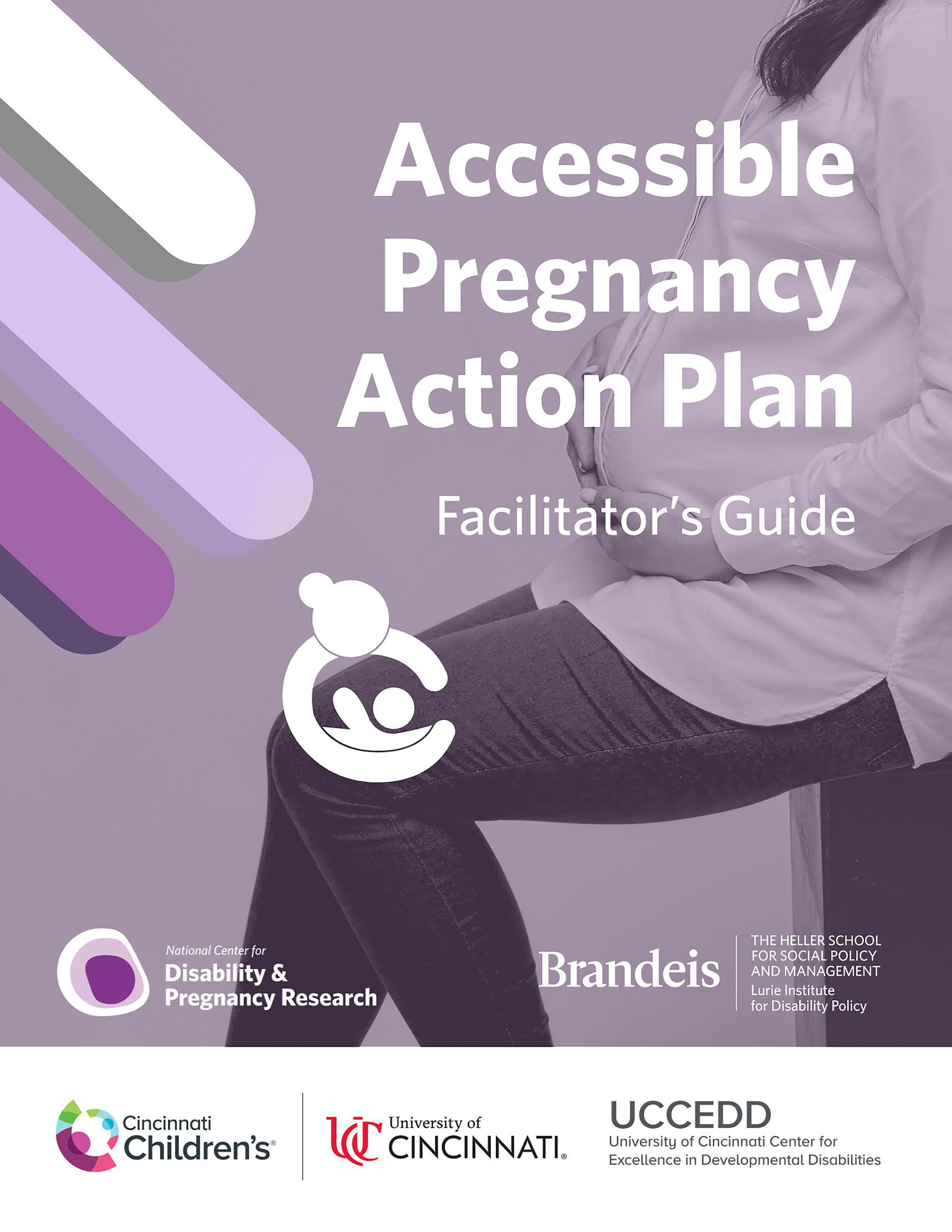The Accessible Pregnancy Action Plan (APAP) is an innovative new tool—distinguished by its focus on supporting pregnant persons with disabilities. It is designed to facilitate discussion between a disabled pregnant woman and her peer about their needs during pregnancy, labor and delivery, and postpartum. Dr. Kara Ayers of the University of Cincinnati, in collaboration with the National Center for Disability and Pregnancy Research, developed a peer-led intervention to enhance the experience of pregnancy for women with disabilities.
The researchers have issued a Facilitator's Guide and Facilitation Slide Set, which are designed to provide a holistic understanding of the intervention and to offer guidance about how to assist disabled pregnant people to develop and implement an accessible pregnancy action plan.
Access the APAP Facilitator's Guide
Access the APAP Facilitator's Slides
![]()
Are you looking for accessible pregnancy action plan tools to use during your pregnancy?
We have several resources available for you to print or download:
![]() Learn more about the APAP Facilitor's Guide and the Plan Modules by watching this short video by Dr. Kara Ayers. It is available below with both English and Spanish subtitles (access by toggling the settings or gear icon) and, below that, in ASL format.
Learn more about the APAP Facilitor's Guide and the Plan Modules by watching this short video by Dr. Kara Ayers. It is available below with both English and Spanish subtitles (access by toggling the settings or gear icon) and, below that, in ASL format.
Dr. Ayers emphasizes the importance for the APAP process that participants co-create their plan with their peer facilitator, resulting in individualized plans. She also stresses the importance of acknowledging disability-related needs and preferences and the possibility of experiencing stigma. A key theme of the APAP is that pregnant people with disabilities express What Matters Most to them. What matters most is unique for each person, and what matters most still matters most even if doctors or others have said it's not possible or there is another reason why it may not be possible or likely.
Captioning for the above video available in both English and Spanish. Access via the video settings (gear icon).
Below is the introductory video presented in ASL format.
Funding
Research for this project has been supported by the National Institute on Disability, Independent Living, and Rehabilitation Research (NIDILRR) under grant number 90DPHF0011 awarded to the National Center for Disability and Pregnancy Research (NCDPR) at the Lurie Institute for Disability Policy, Brandeis University. This resource is solely the responsibility of the researchers and does not necessarily represent the official views of NIDILRR, the Administration for Community Living (ACL), or the U.S. Department of Health and Human Services (HHS).
Disclaimer
This resource is for information purposes only and should not be used as medical advice. Please contact your medical provider if you have specific questions related to pregnancy plans and accessibility.

